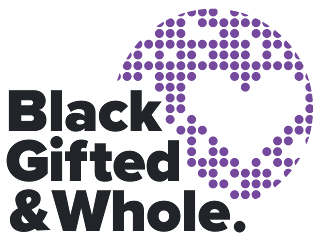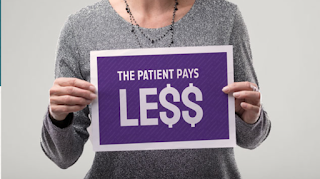By: Guy Anthony, President/CEO, Black, Gifted & Whole Foundation
Recently, as I scrolled through the news, I froze reading a headline: “Only 6% of coronavirus deaths caused by COVID-19.”
Suddenly unable to hear, see, or feel my surrounding, I was taken back to March on the day I began experiencing COVID-19 symptoms. I was taken back to three weeks that followed. I was taken back to the anxiety and the immense feeling of the unknown.
I was symptomatic when I was self-diagnosed. Every day I dreaded the possibility of waking up to the realization that I was becoming sicker by the minute. Would my symptoms be taken seriously? Would I be able to see a doctor before my symptoms got too severe? Would a hospital treat me with the same care knowing I have a preexisting condition?
I am a Black, queer, HIV-positive man living in America. I have lived with HIV for 15 years. I have learned that society is not built to protect me. Laws are not made to protect me. Healthcare is not built to protect me.
When the pandemic started, I immediately became concerned about getting food and my daily medications. In order to keep my immune system healthy, more so than the average person, I rely on fueling my body with healthy foods and religiously taking my prescribed medicine. I also know that healthcare in the United States is segregated. As a Black, queer, HIV-positive man, I am almost guaranteed to get inadequate healthcare compared to my white, heterosexual, HIV negative male counterparts. Black men are more likely than white men to have their pain ignored or deemed not severe. Queer men are more likely than heterosexual men to be refused care and abused in medical settings. HIV positive patients are more likely than HIV negative patients to have other health conditions go undiagnosed or untreated.
I live daily in fear that being Black, being queer, and being-HIV positive negatively influence the healthcare I receive. As doctors and medical professionals dealt with an influx of COVID-19 patients, priority was given to patients who were the most ill. I worried that by the time I got “bad enough” to receive care, my HIV status and weakened immune would complicate my care, and it would be too late.
Fortunately, after three weeks, my immune system fought off the virus. I tested negative. A small sense of relief washed over me. But I still carry the weight of knowing my Blackness, my queerness, and my HIV-status puts me at risk when I am walking down the street, when I tell someone who my partner is, and when I develop any illness in the future, including a possible recurrence of COVID-19.
After a few minutes of staring at the headline that brought me back to March, I grounded myself. As I sat with the article proclaiming just 6% of coronavirus deaths are caused by COVID-19, I knew this number would be used to minimize deaths of people similar to me who were HIV-positive at the time of their death. HIV may have complicated their deaths, but if it were not for COVID-19, they would still be alive.
In light of what I experienced, we created the The BLACK BOX Care Program to address the myriad of concerns affecting Black queer students during the COVID-19 global pandemic. Many student have been displaced and are in need of tangible support. Each box varies and is stocked full of our 5-year anniversary merchandise, offerings from Black Queer authors such as Yolo Akili and George Johnson, and additional contributions from Black Queer entrepreneurs like The Blairisms, THRIVE SS, The Mindful Techie & The LAMDA Lounge. We have already sent out 50 Blackboxes to students in need.
The future of the COVID-19 pandemic is unclear. No one knows precisely when it might end. There is a possibility that I can be infected again. Thousands of people, similar to me, are dying weekly. However, I realize while it can be easy to live in immense fear and despair, I look towards the community, the encouragement, and the positivity at the Black, Gifted, and Whole Foundation. It gives me the motivation and inspiration to keep moving forward.
About Black, Gifted & Whole Foundation: The Black, Gifted & Whole Foundation (BGW) represents a revolutionary attempt to improve the collective narrative of Black Queer folx. Their mission is to empower, educate and mobilize Black Queer folx by acknowledging, celebrating and affirming their whole selves. BGW believes that Black Queer folx are multifaceted and deserve innovative and meticulously researched approaches when being engaged. They believe that Sexual Health + Higher Education + Access to Resources can drastically improve the trajectory of their lives. BGW — conduct intake of — young Black Queer folx while in High School, College, or Graduate School, assess their needs, aspirations and sexual health awareness and provide them with financial and emotional support. Donate to Black, Gifted & Whole Foundation.

Disclaimer: Guest blogs do not necessarily reflect the views of the ADAP Advocacy Association, but rather they provide a neutral platform whereby the author serves to promote open, honest discussion about public health-related issues and updates.








